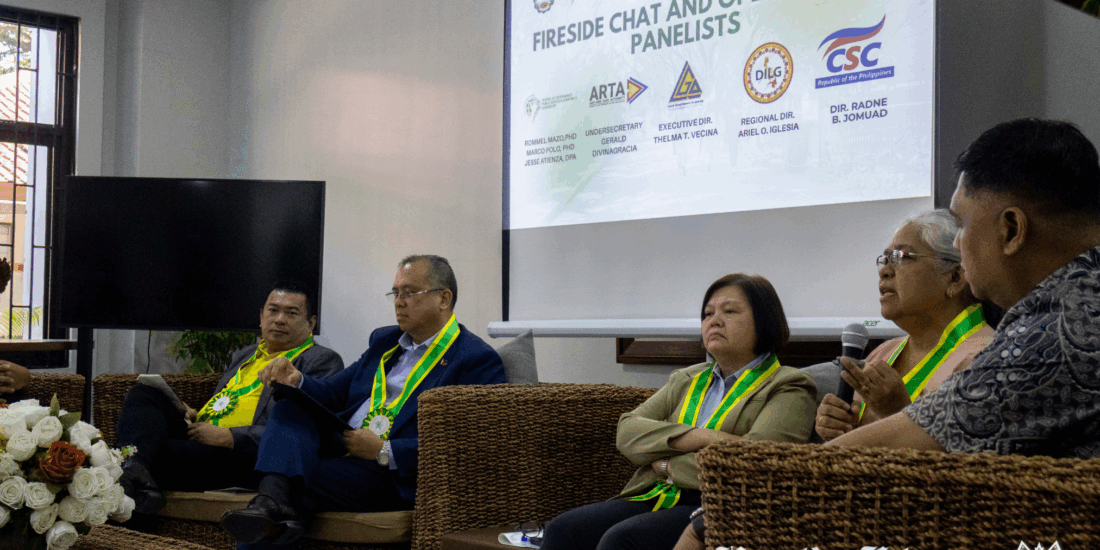DLSU-D allows campus facility use for students for the first time in two years
Originally published in The HERALDO FILIPINO Volume 36 Issue 1.
After two years of facility closure for academic purposes, DLSU-D is set to open its campus facilities for students’ use starting the second semester of academic year (AY) 2021-2022 on February 28.
In an interview with The HERALDO FILIPINO, Vice Chancellor for Academics and Research (VCAR) Dr. Marco Saez shared that the seven colleges, Office of Student Services (OSS), Office of the Assistant Vice Chancellor for Academic Services (OAVCAS), and high school department will manage the operations of identified facilities to function for the next semester.
When it comes to college facilities, students will be allowed to utilize department laboratories for academic use, as well as spaces that have been restricted since the nationwide lockdown in March 2020.
Facilities like computer rooms for the College of Engineering, Architecture and Technology (CEAT), crime laboratory for College of Criminal Justice Education (CCJE), kitchen and bar room for College of Tourism and Hospitality Management (CTHM), communication, languages, and psychology laboratories for College of Liberal Arts and Communication (CLAC), and science and math laboratories for College of Science and Computer Studies (CSCS) were cited open for use.
Meanwhile, classrooms under the College of Business Administration and Accountancy (CBAA) and College of Education (CoEd) may be reserved for examinations, thesis defense, and consultation matters.
On the other hand, open spaces like the Botanical Garden and DLSU-D Lake will be managed by CSCS “to accommodate field activity and sampling by faculty, undergraduate and graduate researchers, and organized activity/event by the University”.
“Maximum of 4 hours (non-renewable) throughout the day for the same facility with a gap of one hour in between for cleaning/disinfection (must be observed). The specific guidelines may set a shorter period to allow an alternating set up that provide access to as many students and teachers as much as possible,” the general guidelines on facility use indicated.
Aside from opening college laboratories, the Aklatang Emilio Aguinaldo (AEA) library will also be open for students to be managed by the OAVAS. On the other hand, organizations under OSS such as the Council for Student Organization (CSO), Recognized Student Organizations (RSO), University Student Government (USG), and college student governments (CSGs) will also be permitted to maximize facilities in their offices, according to OSS Dean Domingo Reblora Jr.
Regulations for facility use
To ensure that safety standards will still be in place inside the campus, VCAR said that the University will be implementing the reservation system for facility usage.
In the general guidelines released to The HERALDO FILIPINO, the measure specified that booking and reservation for facilities are to be handled by the designated offices and colleges. However, students may only avail reservation under official businesses such as utilization of laboratories, thesis consultations and defense, and examination taking.
To obtain a reservation, the student will contact the college secretary regarding the facility’s availability. Once the schedule is available, the secretary would also inform the student on the forms needed to be submitted and the capacity of the venue reserved.
After signing up and printing the confirmation notice, the student may enter the campus by presenting their vaccination card and the mentioned notice. Directional signages, session duration, and specific safety protocols should be observed by the student once they enter the University.
Violation of any procedure or guideline would result in both the student and professor a warning for the first offense, a suspension of other reservation made for 14 days for the second offense, and a suspension of reservations for the rest of the semester for the third offense.
Overall, students are required to be fully vaccinated, a dependent of an individual with medical insurance with coronavirus disease 2019 (COVID-19) coverage or own personal insurance, and must be able to present parental consent to be able to use campus facilities.
“The Administration reserves the right to cancel the reservation at any time when the situation, upon its assessment, will compromise the health and safety of all involved,” the guidelines added.
Learning Continuity Plan.
While campus facilities will be open for the second semester, the University has also finalized its learning continuity plan for the following AY – a chart designed to identify the mode of learning under any alert level system imposed by the national government. The plan was approved by the academic council on February 22, which is expected to be implemented by the AY 2022-2023.
As per the learning chart from the OVCAR, onsite supplemental activities such as lectures, laboratory works, field work, practicum, consultations, and exams will be allowed under Alert Level One – the lowest quarantine classification in the country. Meanwhile, the allowance of onsite activities varies depending on the alert level imposed in the province.
This is in line with the Commission on Higher Education (CHED) and Department of Health (DOH) Joint Memorandum Circular No. 2021 – 004, which addressed that face-to-face classes must remain optional, but within the discretion of the higher education institution (HEI).
“Onsite (whatever activity it may be) remains to be supplemental (i.e. only those who would like on top of the online set up), in great consideration of the individual preferences and comfort level of students and parents,” Saez said.
The joint memorandum also listed two documents to be accomplished for the approval of supplemental face-to-face classes, which are the self-assessment tool for university retrofitness and the affidavit of undertaking.
As of February 23, Saez shared that these documents were prepared and submitted to CHED by the OVCAR and the University Crisis Management Team, headed by Buildings and Facilities Maintenance Office (BFMO) Director Engr. Jose Rizaldy De Armas.




